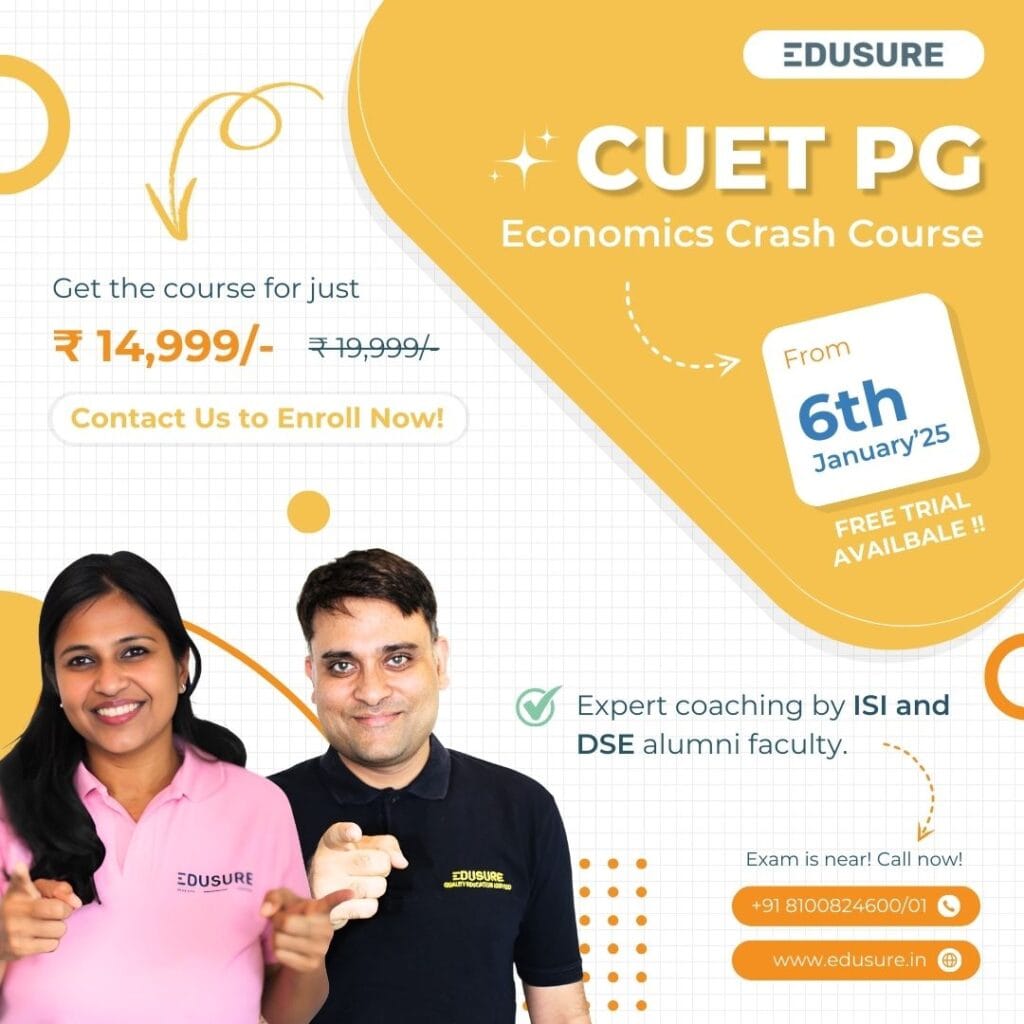All about Masters in Economics
What is Master’s in Economics?
A postgraduate programme in Economics was created especially for students to give them knowledge in the fields of banking, finance, commerce, and economic management. The Master of Arts/Science curriculum seeks to give students a solid foundation in economics while also advancing their knowledge of the subject.
Why Masters in Economics?
Globally, there is a significant demand for economists. Professionals in the field of economics can find employment in both public and private institutions. The job possibilities for economists in business, education, and NGOs around the world have improved as a result of ongoing globalization. There are numerous alternatives in terms of work opportunities, including:
- Banker
- Consultant
- Data Analyst
- Data Scientist
- Economist
- Equity Analyst
- Financial Planner
- Lecturer in economics
- RBI Officer
- IAS
- IES
Salaries offered after Master’s in Economics
A Master’s in Economics student is offered high salary packages in comparison to other jobs because of the specialized skill and knowledge they possess and the relative demand for these courses.
A student from a top university of Economics can expect a Job of Rs 15-20 lacs immediately after completing their Master’s.
Where to pursue a Master’s in Economics from?
Below is the list of some of the top colleges and universities from across the country where you can pursue an M.A in Economics (in alphabetical order) :
- Ashoka University, Delhi
- Christ University, Bangalore
- Delhi School of Economics, Delhi
- Gokhale Institute of Politics and Economics, Pune
- Indian Institute of Foreign Trade, Delhi, Kolkata
- Indian Institutes of Technology, Delhi, Kanpur, Roorkee, Chennai
- Indian Statistical Institute, Delhi & Kolkata
- Indira Gandhi Institute of Development Research, Mumbai
- Jamia Millia Islamia (JMI), University, Delhi
- Jawahar Lal Nehru University, Delhi
- Madras School Of Economics, Chennai
- South Asian University, Delhi
- Shiv Nadar University, Delhi
- TERI SAS, Delhi
How to pursue Master’s in Economics?
In order to ensure that students have a practical perspective on the subject in addition to the academic reading required for the course, many private and public universities offering Master’s in Economics in India use the admission exam (an entrance exam) approach. Several of the most well-known Master of Arts in Economics entrance exams in India are listed below:
- CUET
- ISI
- IIT JAM
- IIT GATE
- BHU PET
- IGIDR
- SNU
- Ashoka
- others
The Master of Economics programme is often a two-year postgraduate programme that is divided optimally into four semesters and typically includes the submission of a thesis. Macroeconomics, microeconomics, public economics, econometrics, international, development economics, and financial economics are among the major subjects/topics covered in the course. The classes also teach you how to upgrade your soft skills and learn various industry-required applications.
Fees for different Economics Courses
Masters’s in Economics is a very reasonable course to pursue and has some of the lowest fees in the country.
Fees of ISI is Rs 0, in fact, it pays a student a monthly stipend for study there. You just have to clear their entrance. Fees of DSE is Rs 14,000 a year. Fees of JNU is Rs 5000 a year. The fee for IGIDR is Rs 80,000. The private colleges of Ashoka and SNU have higher fees but offer very generous scholarships.
Who can pursue an MA in Economics?
Any graduate from any stream can pursue a Master’s in Economics degree. The only prerequisite a few Colleges have is of having Maths in Class 11-12 as Maths forms a very integral part of the Master’s in Economics programme.
How to prepare for M.A. Economics entrance examinations?
The Entrance exam focuses on Key concepts and application questions from the subjects of Mathematics, Statistics, Microeconomics, macroeconomics and the Indian Economy. The syllabus is vast and rigorous preparation is required to secure a seat in the top institute.
EduSure has the best and the most structured programme to crack the Master’s in Economics Entrance Exams. It’s a 12-year-old Institute with Rank 1 in DSE, JNU, IGIDR, and IIT amongst others consistently in the last few years.
To see student testimonials of Edusure and hear about their success: www.youtube.com/edusureschool
To speak to an Edusure student counselor, please fill out this Enquiry Form or call on 8100824600.
For course, enrolment drop in your details on https://edusure.in/contact/ and we shall get back to you!
Ask a Question: edusureschool@gmail.com
contact@edusure.in
Subscribe: https://www.youtube.com/c/EduSureSchool
We hope this was helpful.
Happy Learning!!


